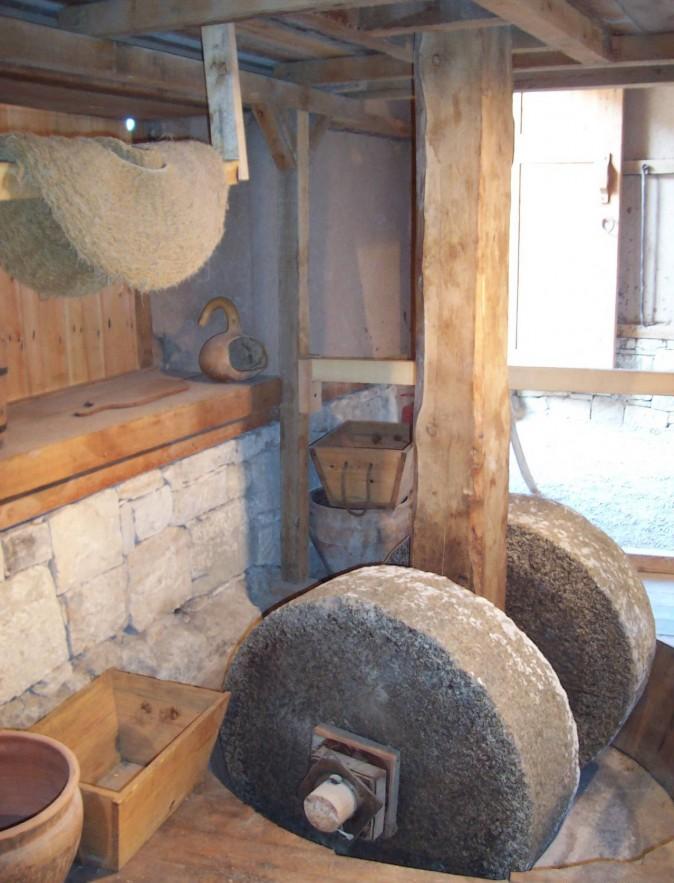|
Vegetable Oil Refining
Vegetable oil refining may refer to: * Fat hydrogenation, combining vegetable oil with hydrogen to make it more saturated * Edible oil refining, process to refin a raw oil to produce an edible oil, which differ from Olive oil production. * Biodiesel production Biodiesel production is the process of producing the biofuel, biodiesel, through the chemical reactions of transesterification and esterification. This involves vegetable or animal fats and oils being reacted with short-chain alcohols (typically ... by transesterification * Production of hydrotreated vegetable oil, a biofuel {{dab ... [...More Info...] [...Related Items...] OR: [Wikipedia] [Google] [Baidu] |
Fat Hydrogenation
Fat hydrogenation is the process of combining fat – typically liquid vegetable oils – with hydrogen, to convert some or all of the unsaturated fat into saturated fat, resulting in a solid or semi-solid fat. Changing the degree of saturation of the fat changes some important physical properties, such as the melting range, which is why liquid oils become semi-solid. Solid or semi-solid fats are preferred for baking because the way the fat mixes with flour produces a more desirable texture in the baked product. Because partially hydrogenated vegetable oils are cheaper than animal fats, are available in a wide range of consistencies, and have other desirable characteristics such as increased oxidative stability and longer shelf life, they are the predominant fats used as shortening in most commercial baked goods. The process is typically carried out at very high pressure, with the help of a nickel catalyst that is removed from the final product. Process Hydrogenating vegetable ... [...More Info...] [...Related Items...] OR: [Wikipedia] [Google] [Baidu] |
Edible Oil Refining
Edible oil refining is a set of processes or treatments necessary to turn vegetable raw oil into edible oil. Raw vegetable oil, obtained from seeds by pressing, solvent extraction, contains free fatty acids and other components such as phospholipids, waxes, peroxides, aldehydes, and ketones, which contribute to undesirable flavor, odor, and appearance; for these reasons, all the oil has to be refined. Steps Degumming Vegetable oil contains lecithins, phospholipids, and metals, which are generally called, because of their appearance, ''mucilaginous gums'' or simply ''gum''. The process of elimination of the gums is called degumming. These gums are natural emulsifiers, that can cause an increase in viscosity which is an important parameter for the final product. Because of this physical problem, it is important to perform this first step since the high viscosity could create difficulties during the subsequents steps of filtrations. Depending on the raw oil, these ... [...More Info...] [...Related Items...] OR: [Wikipedia] [Google] [Baidu] |
Olive Oil
Olive oil is a liquid fat obtained from olives (the fruit of ''Olea europaea''; family Oleaceae), a traditional tree crop of the Mediterranean Basin, produced by pressing whole olives and extracting the oil. It is commonly used in cooking: for frying foods or as a salad dressing. It can be found in some cosmetics, pharmaceuticals, soaps, and fuels for traditional oil lamps. It also has additional uses in some religions. The olive is one of three core food plants in Mediterranean cuisine; the other two are wheat and grapes. Olive trees have been grown around the Mediterranean since the 8th millennium BC. In 2019–2020, world production of olive oil was . Spain was the largest producer followed by Italy, Tunisia, Greece, Turkey and Morocco. San Marino has by far the largest per capita consumption of olive oil worldwide. The composition of olive oil varies with the cultivar, altitude, time of harvest, and extraction process. It consists mainly of oleic acid (up to 83%), with ... [...More Info...] [...Related Items...] OR: [Wikipedia] [Google] [Baidu] |
Biodiesel Production
Biodiesel production is the process of producing the biofuel, biodiesel, through the chemical reactions of transesterification and esterification. This involves vegetable or animal fats and oils being reacted with short-chain alcohols (typically methanol or ethanol). The alcohols used should be of low molecular weight. Ethanol is the most used because of its low cost, however, greater conversions into biodiesel can be reached using methanol. Although the transesterification reaction can be catalyzed by either acids or bases, the base-catalyzed reaction is more common. This path has lower reaction times and catalyst cost than those acid catalysis. However, alkaline catalysis has the disadvantage of high sensitivity to both water and free fatty acids present in the oils. Process steps The major steps required to synthesize biodiesel are as follows: Feedstock pretreatment Common feedstock used in biodiesel production include yellow grease (recycled vegetable oil), "virgin" vege ... [...More Info...] [...Related Items...] OR: [Wikipedia] [Google] [Baidu] |
.jpg)


